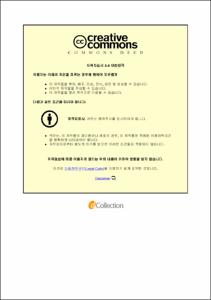산업연관분석을 활용한 스마트 도시 산업의 경제적 파급효과 분석
- Abstract
- In 2010, the global urbanization rate has exceeded 50% and is expected to increase to 68% by 2050. Fifty percent of the world's population lives in cities, and the acceleration of urban inflows will continue into 2050, with 70 percent of the population living in cities. The increase of the urban population will continue to increase the population within the city, which will eventually lead to various problems within the city beyond the urban population.
In the existing cities, they tried to resolve the urban problems caused by the population increase by solving them physically, but there were clear limitations such as expanding the manpower by investing large funds and adding infrastructure. In this situation, 'Smart City' has emerged as a way to solve the urban problem by utilizing the existing infrastructure of the city more efficiently.
For this reason, governments around the world are pursuing smart city policies in ways that are appropriate for their countries. Korea is also pursuing a large-scale investment in selecting the smart city business as one of the seven new industries in line with these trends.
Despite its importance, there is no clear definition of smart city, and there is a lack of research on the industries that are affected by it. Therefore, this study defined the definition of smart city and its industry, and studied how the construction of smart city will have an economic impact on the Korean national economy.
To do this, This research conducted a Delphi specialist questionnaire and an industry association analysis, and
the process is as follows.
To analyze the economic ripple effect of the smart city industry, I defined the smart city. Based on this definition, the Delphi questionnaire was executed twice for smart city related experts and practitioners, thereby deriving the link between smart city and other industries and reclassifying the structure of industry. After that, we divide the derived industry into two ways, and conducted an industry-related analysis, which led to the economic ripple effect of the smart city industry.
The characteristics and policy implications of the smart urban industry are summarized as follows.
The smart city industry has been shown to have a stronger front-chain effect than other industries. This implies that the impact of the smart city industry on other industries is greater than that on other industries.
Also, when smart city construction was implemented, the industries expected to be affected extensively were expected to have a significant impact on the national economy. In the case of the broadly defined smart city industry, the value added inducement effect and the employment inducement effect are significantly improved, and the above facts can be deduced.
Therefore, the smart city industry is not just an industry that focuses on one industry, and it is expected that policies and policies should be established in consideration of the mutual relationship between industries directly or indirectly related to the industry.
- Issued Date
- 2019
- Awarded Date
- 2019. 2
- Type
- Dissertation
- Publisher
- 부경대학교
- Affiliation
- 부경대학교 대학원
- Department
- 대학원 과학기술정책협동과정
- Advisor
- 이민규
- Table Of Contents
- 1.서론 1
1.1.연구의 배경과 목적 1
1.2.연구의 방법과 구성 2
2.이론적 배경 및 선행연구 4
2.1.스마트 도시산업의 정의 4
2.2.스마트 도시산업의 발전과 현황 12
2.3.스마트 도시산업의 선행연구 17
3.경제적 파급효과 분석 21
3.1.분석의 구성 21
3.2. 스마트 도시산업의 분류 22
3.3.스마트 도시산업의 경제적 파급효과 분석 27
4. 결론 44
- Degree
- Master
- Appears in Collections:
- 대학원 > 과학기술정책협동과정
- Files in This Item:
-
-
Download
 산업연관분석을 활용한 스마트 도시 산업의 경제적 파급효과 분석.pdf
기타 데이터 / 988.29 kB / Adobe PDF
산업연관분석을 활용한 스마트 도시 산업의 경제적 파급효과 분석.pdf
기타 데이터 / 988.29 kB / Adobe PDF
-
Items in Repository are protected by copyright, with all rights reserved, unless otherwise indicated.